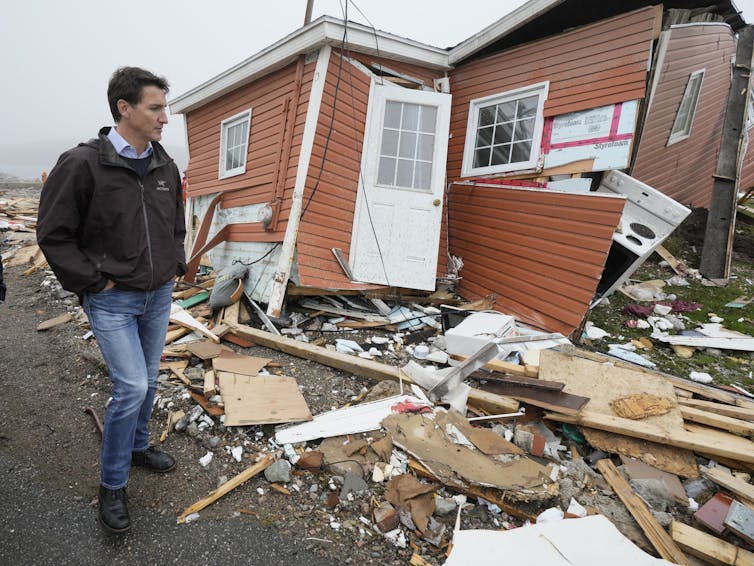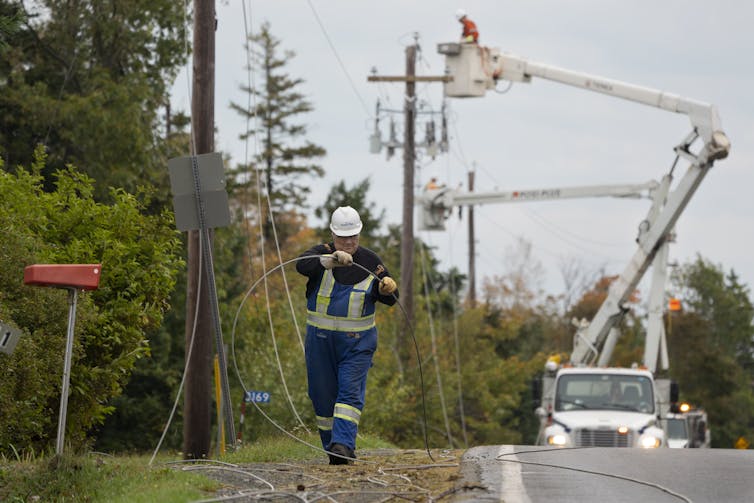, Scholarly Director of the MacEachen Institute for Public Policy and Governance, Ìý²¹²Ô»åÌý, Research Associate, Public Policy, .
The ability to prepare for and recover from an emergency is a privilege many take for granted. Two days before post-tropical cyclone Fiona reached Atlantic Canada, : for 72 hours, including food, water and medications for each member of the household as well as for their animals.
People that could assist them during an emergency. .
Despite these directions, post-mortems for the as well as all noted that we don’t do enough to address the needs of vulnerable populations during disasters. Progress has been made over recent years, but the experiences of people with disabilities during Fiona and show there is more to be done.
The impact on people with disabilities
uses a wheelchair and provided a harrowing account of being on her own during Fiona, with no power, telecommunications or accessible transportation during the event. .
Other people with disabilities . .
Canadians 15 and older have at least one disability, with nearly 40 per cent reporting two or more disabilities. The Atlantic provinces The aging population in the region suggests the number of people with disabilities in Atlantic Canada is growing.
Emergency preparation raises important practical questions. You need the time and wherewithal to acquire necessary supplies, and the space to store them adequately. This can be challenging for people with disabilities who . Social networks may not not be readily available either; .

A legal obligation
Supporting people with disabilities in an emergency is not just about doing the right thing, it’s also the law, fundamental to human rights and a feature of several international agreements to which Canada is signatory.
Article 11 of the , the and the all underscore the right for people with disabilities to access services and supports in an emergency.
Accessibility legislation has been implemented in many provinces, including , , and .
Recent policies encourage the elderly and people with disabilities to stay at home longer. . This makes it challenging to identify where people with disabilities are located during an event.
There have been calls for a registry for persons with disabilities to strengthen emergency response. Some municipalities, , N.S. , have registries while others keep lists of people with disabilities in institutions like group homes.
Utilities like for home oxygen and dialysis machines. is used by police departments primarily in Saskatchewan, Ontario, Prince Edward Island and Newfoundland and Labrador to access subscribers’ information in case of emergency.

Limitations
This approach has important limitations. Some jurisdictions have struggled to use registries effectively. There are also privacy considerations. People do not necessarily want to disclose information about their disability.
Keeping the information up-to-date is also a significant undertaking; an out-of-date list creates new dangers. Where the data is stored and who has access are also key questions.
Finally, the liability and service standard considerations for an agency that collects such information are unclear. Without power and telecommunications, any assistance would be significantly constrained.
One solution is to better integrate the views and experiences of people with disabilities into emergency planning prior to such events.
Accessible transportation and access to specific equipment and supplies are particularly important. They also need to know who to reach out to for qualified support and have confidence that such support will be available.
There are . Manitoba, for example, established the , a coalition of the Manitoba Disability Issues Office, community disability and seniors’ organizations, and emergency responders.
The network tries to integrate lived experience of those with disabilities into emergency responses. Other regions in Canada should adopt similar institutional practices.![]()
This article is republished from under a Creative Commons license. Read the .

